JUSTICE AND MERCY
Bishops across the United States articulate Catholic Church teaching on migration
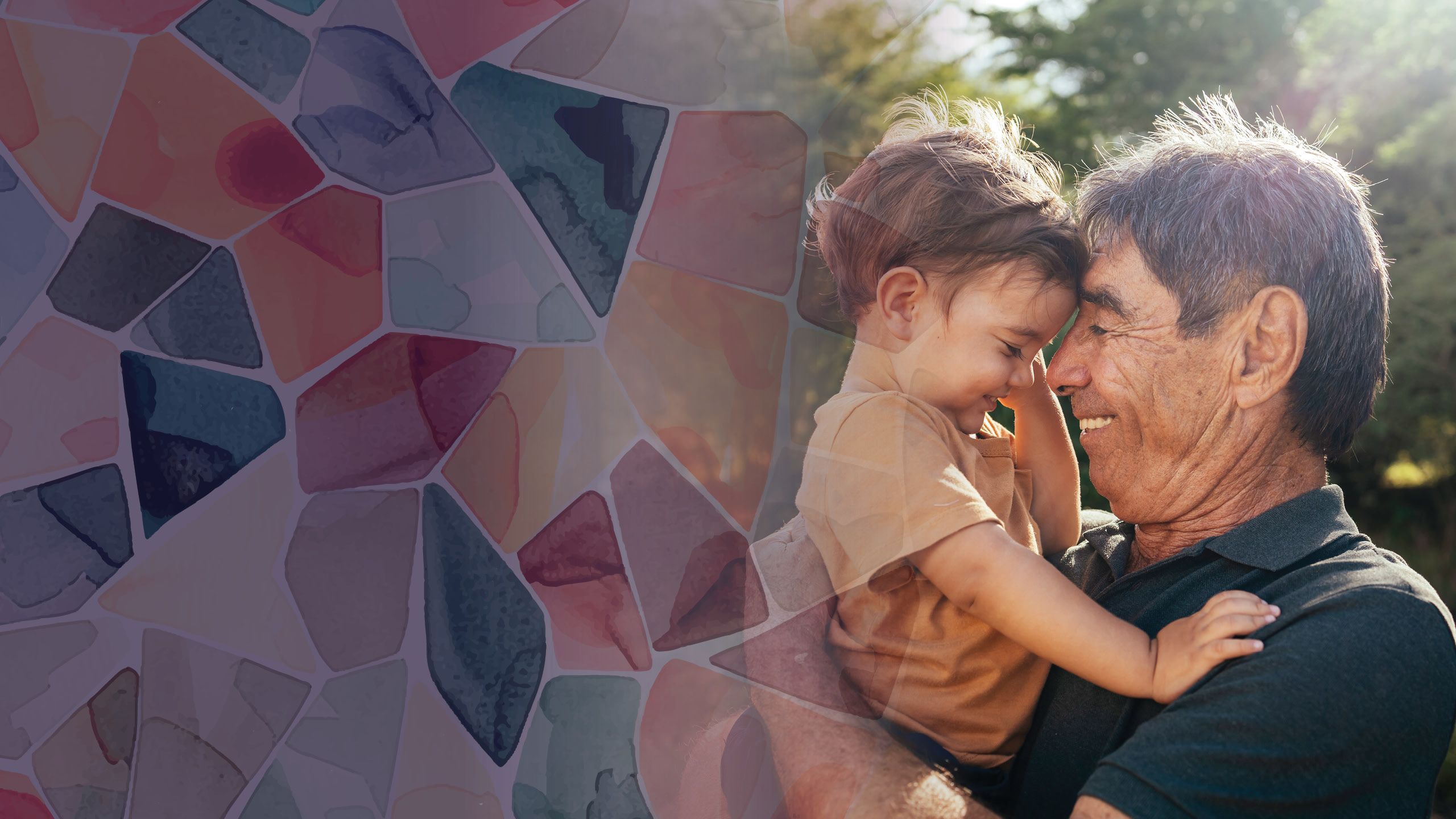
JUSTICE AND MERCY
Bishops across the United States articulate Catholic Church teaching on migration

As immigration has become the country’s most polarizing political issue, the services that some Catholic Charities agencies provide to migrants have been unfairly mischaracterized. This merciful work is a response to the Gospel mandate to feed the hungry, clothe the naked and welcome the stranger.
In 2003, the bishops of the United States and Mexico collectively articulated the Catholic Church’s teaching on migration in their Pastoral Letter Concerning Migration from the Catholic Bishops of Mexico and the United States.
Today, as the Church’s service to migrants continues to be misunderstood and maligned, bishops across the country have published statements and reacted to the administration’s policies related to migration. We invite you to review a selection of those comments.
“Every stranger who knocks at our door is an opportunity for an encounter with Jesus Christ, who identifies with the welcomed and rejected strangers of every age.”
Pope Francis, World Day of Migrants and Refugees, 2018
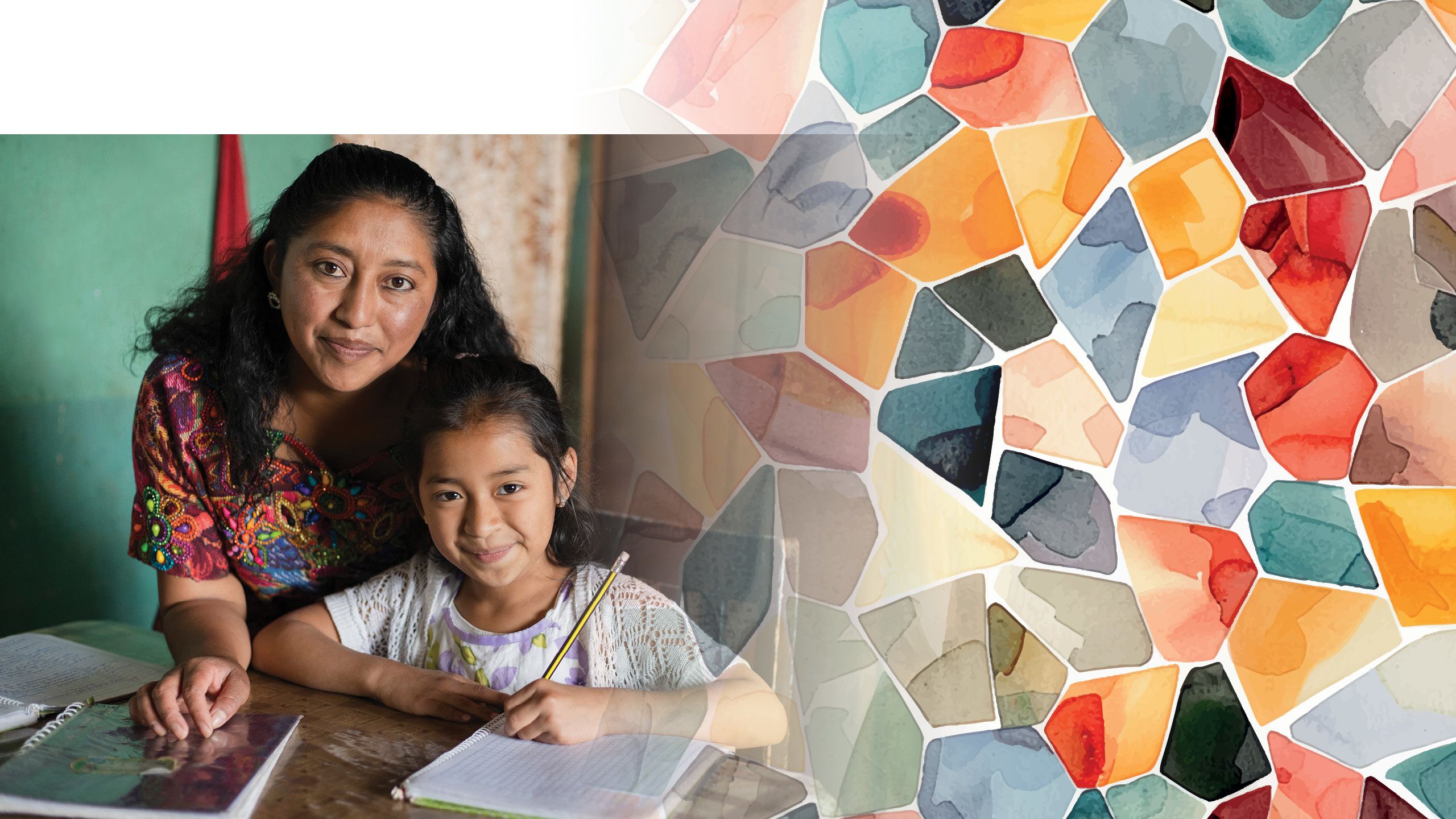
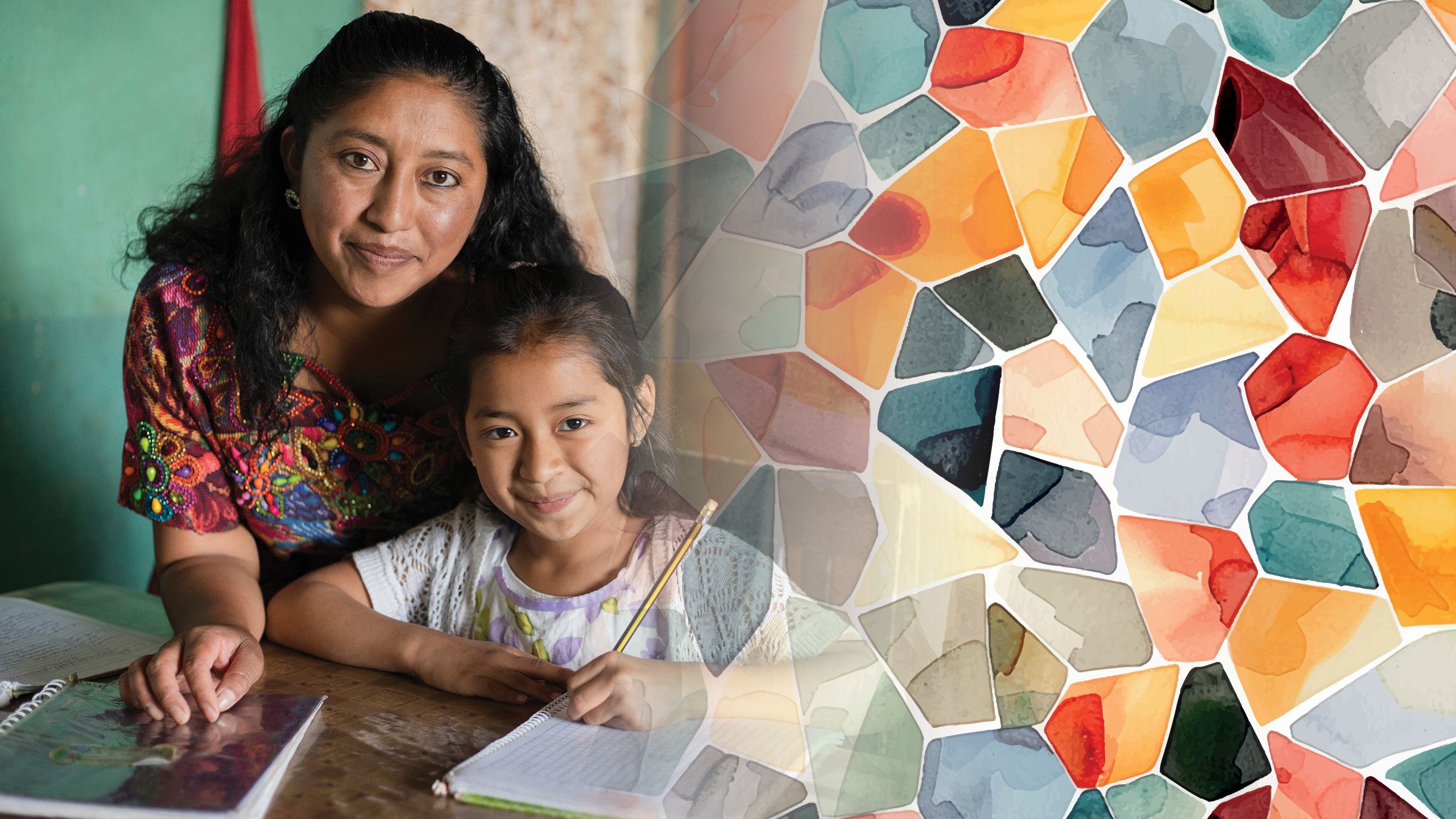
UNITED IN SOLIDARITY
Pope Francis

Letter of the Holy Father Francis to the Bishops of the United States of America (Feb. 10, 2025)
Excerpts include:
“This is not a minor issue: an authentic rule of law is verified precisely in the dignified treatment that all people deserve, especially the poorest and most marginalized. The true common good is promoted when society and government, with creativity and strict respect for the rights of all — as I have affirmed on numerous occasions — welcomes, protects, promotes and integrates the most fragile, unprotected and vulnerable. This does not impede the development of a policy that regulates orderly and legal migration. However, this development cannot come about through the privilege of some and the sacrifice of others. What is built on the basis of force, and not on the truth about the equal dignity of every human being, begins badly and will end badly.”
UNITED IN SOLIDARITY
United States Conference of Catholic Bishops (USCCB)

U.S. Bishops
USCCB Statement on its Work with the U.S. Refugee Admissions Program (Jan. 26, 2025)
Excerpts include:
“Faithful to the teaching of Jesus Christ, the Catholic Church has a long history of serving refugees. In 1980, the bishops of the United States began partnering with the federal government to carry out this service when Congress created the U.S. Refugee Admissions Program (USRAP). Every person resettled through USRAP is vetted and approved for the program by the federal government while outside of the United States. In our agreements with the government, the USCCB receives funds to do this work; however, these funds are not sufficient to cover the entire cost of these programs. Nonetheless, this remains a work of mercy and ministry of the Church.”
Bishop Mark J. Seitz, Chair, USCCB Committee on Migration, with Sr. Mary Haddad, RSM (Catholic Health Association) and Kerry Alys Robinson (CCUSA)
Statement on Rescinding Guidance on ‘Protected Areas’ in Immigration Enforcement (Jan. 23, 2025)
Excerpts include:
“Catholic health care, Catholic Charities agencies, and the Church’s other social service ministries work daily to feed, house, heal, educate, and meet people’s needs in communities across our nation. Through these ministries—together with the Church’s responsibility to proclaim the Gospel and celebrate the sacraments—we uphold the belief that all people are conceived with inherent dignity, reflecting the image of God. Through our parishes, shelters, hospitals, schools, and other Church institutions, we recognize that this dignity is not dependent on a person’s citizenship or immigration status. Moreover, the charitable services we provide are fundamental to who we are as Christians.”
“Turning places of care, healing, and solace into places of fear and uncertainty for those in need, while endangering the trust between pastors, providers, educators and the people they serve, will not make our communities safer.”
Archbishop Timothy P. Broglio, President, USCCB, and Chair, USCCB Committee on Migration
Statement on Executive Orders Signed by the President (Jan. 22, 2025)
Excerpts include:
“Our prayer is one of hope that, as a Nation blessed with many gifts, our actions demonstrate a genuine care for our most vulnerable sisters and brothers, including the unborn, the poor, the elderly and infirm, and migrants and refugees. The just Judge expects nothing less.”
U.S. Bishops
Statement on the Feast of Our Lady of Guadalupe (Dec. 12, 2024)
Excerpts include:
“Throughout the life of our nation, we have seen at times unacceptable demonstrations of prejudice and hatred, including in recent days mass communications targeting people of color and disparaging comments about immigrant communities. With one clear voice, we reaffirm our unwavering and unqualified recognition of the fact that each and every human life is sacred, that all persons are imbued by God with an inviolable dignity, which no earthly power can deny. The sinful ideologies of racism and xenophobia are antithetical to these core teachings of our Christian faith. No person formed by and committed to the Gospel of Life can harbor such views in good conscience.”

UNITED IN SOLIDARITY
Dioceses and State Bishops Conferences

Minnesota Catholic Conference
Statement on Immigration Law and the Common Good of the Nation (Feb. 7, 2025)
Excerpts include:
“The reality is that even though we, as a nation, have come to rely on undocumented migrants and their many contributions to our communities, they have far too often been treated as political pawns. Their labor is exploited, and they are threatened with deportation and demonized whenever it is politically expedient. They are forced to live in fear and operate often within the shadows of society and the economy. And now they are at risk even in our Catholic churches and schools. Such behavior is a hallmark of what Pope Francis calls a “throw-away” culture.“
“We encourage the Administration to conduct immigration enforcement prudently, cautiously, and always with human dignity in mind. Central to protecting human dignity is respecting the security and integrity of the family. And families—especially those with minor children and those whose children or siblings are citizens—should not be separated and deported.“
Arizona Catholic Conference
Statement on Recent Immigration Issues (Feb. 4, 2025)
Excerpts include:
“Immigration is a complex and oftentimes life-or-death issue that touches the lives of many families and children. While our Nation’s immigration system is badly broken and desperately in need of repair—and the waves of immigration of recent years are unsustainable—any approach that villainizes those in the midst of a humanitarian crisis is inconsistent with the Gospel of Jesus Christ. For Catholics, our ministries to those arriving at our borders are an essential part of our deeply held religious beliefs. And while we remain deeply concerned for the safety and welfare of our Catholic flocks, we equally serve and advocate for those who do not belong to our Church. In all things we are motivated solely by the words of Jesus.”
“Meeting in person with those fleeing death, starvation, extreme poverty, persecution or great fear, is almost always an intense and powerful encounter with the wounded Christ Himself.”
Catholic Diocese of Arlington
A Pastoral Statement on American Immigration Law and the Catholic Imperative of Upholding Human Dignity and the Common Good (Jan. 31, 2025)
Excerpts include:
“Spiritually, we are all migrants on a holy pilgrimage to our heavenly home. The Church carries us through every flood of life, towards the eternal safety of the City of God. When addressing the topic of migration, the Church has historically emphasized two crucial points. First, the rights of persons to the integrity and unity of their families irrespective of where they settle. Second, the right of all to the spiritual care afforded by the sacraments. We are also obligated, as believers in Jesus Christ, to serve those who come to us for assistance—no matter who they are. No Church ministry should hesitate to provide that vital assistance our faith compels us to offer: celebrate the Mass and offer the sacraments, feed the hungry, clothe the naked, heal the sick, and welcome the stranger. For these reasons, I plead with those responsible for law enforcement to refrain from entering our sacred spaces unless absolutely and unequivocally necessary to ensure the safety of all persons.”
“Along with our greatest respect for human dignity, and as a consequence of our respect for the common good, the Church has always shown the greatest concern for all that is right and just. We implore all leaders to strive to keep our nation safe for the sake of thriving and healthy families, including migrant families.”
Michigan Catholic Conference
A Pastoral Note to Migrants from the Catholic Bishops in Michigan (Jan. 28, 2025)
Excerpts include:
“We, the Roman Catholic Bishops in Michigan, write to offer our continued pastoral and prayerful support for migrant individuals and families who over the course of time have entered the country and today are making a living in this state. Our fraternal closeness to you and other immigrants, refugees, and those seeking humanitarian asylum is rooted in the Gospel of Jesus Christ, where we find “I was thirsty and you gave me drink, a stranger and you welcomed me… Whatever you did for one of these least brothers of mine, you did for me” (Matthew 25:35,40).”
“Mindful of the dire conditions from which many travel, oftentimes with children through great difficulty and despair, we encourage you, our migrant brothers and sisters, to be strengthened by our Lord’s words “Peace I leave with you; my peace I give to you… Do not let your hearts be troubled or afraid” (John 14:27). Never fail to keep your faith and hope in our Lord Jesus Christ, who promises a divine kingdom that we strive to inherit and together call our true home.”
The Maryland Catholic Conference
In Solidarity and Accompaniment (Jan. 27, 2025)
Excerpts include:
“We want you to know that you are not alone. We stand with you, journeying alongside you in solidarity and accompaniment. We are here to offer compassionate care, to listen to your needs, and to advocate for justice on your behalf. The Church has always been a home for those in search of refuge and peace, and we remain steadfast in our commitment to welcome the stranger and embrace the vulnerable.”
“During times of uncertainty, our faith reminds us of the dignity and worth bestowed upon every person by our Creator. Let us remember the words of Pope Francis, who calls us to see in every migrant not ‘a problem to be solved, but … brothers and sisters to be welcomed, respected, and loved.’”
Archdiocese of Indianapolis
Archdiocesan Statement on Immigrants and Refugees (Jan. 25, 2025)
Excerpts include:
“Using the foundational principles of the Church's social and moral teaching, we will continue to advocate for the just and dignified treatment of migrants as well as for national immigration reform that includes targeted, proportionate, and humane enforcement, and reasonable pathways to citizenship for long-time residents with an emphasis on family unity. We are committed to accompanying those in need through prayer, advocacy, ongoing formation and education, legal remedies, and all proper means of support.”
“I invite all in our Catholic communities to join me in supporting our migrant brothers and sisters as we advocate for meaningful immigration reform. As Catholics and Americans, we have a moral obligation to discern the difference between the vulnerable and those who hide among the vulnerable seeking to exploit them.”
Diocese of Kansas City-St. Joseph
Compassion amid Uncertainty (Jan. 25, 2025)
Excerpts include:
“Nations and communities have a right to protect the common good, but this must not violate the other moral rights attached to the dignity of the human person, nor the moral obligation of Christians to help those in need.
In light of these developments, I call upon all members of our diocesan family—parishioners, educators, students, and clergy—to embody the Gospel values of love, mercy, and justice. Let us:
Pray Fervently: Seek divine guidance for our nation’s leaders, that they may enact policies reflecting compassion and respect for human dignity.
Educate Ourselves: Understand the teachings of the Church on migration and the rights of individuals, articulated in the Catechism of the Catholic Church #2241, and as outlined by the USCCB’s Migration and Refugee Services.
Extend a Hand of Welcome: Offer support and solidarity to migrants and refugees within our communities, recognizing Christ in the stranger among us.
Advocate for Justice: Engage in peaceful and constructive dialogue, urging our policymakers to consider the moral implications of their decisions and to work for comprehensive immigration reform.”
Colorado Catholic Conference
Welcoming the Stranger, Protecting the Common Good (Jan 24, 2025)
Excerpts include:
“Every person and nation have a moral obligation to act in accordance with justice and mercy. In times of crisis, justice dictates that the world community has an obligation to provide basic human needs, such as shelter, food, medical services, and the ability to work for those in urgent need. However, even when migration occurs without crisis, a nation’s limits on migration should be based on justice, mercy, and the common good.”
“Immigration is not only a policy issue; it is a test of our moral character. As Catholic faithful, we must remember the words of St. Paul: ‘You are no longer strangers and sojourners, but fellow citizens with the saints and members of the household of God’” (Ephesians 2:19).
The Texas Catholic Conference of Bishops
Texas Bishops Call for Just and Humane Approach to Migration (Jan. 24, 2025)
Excerpts include:
“The bishops of Texas will continue to work with governmental officials and other people of good will to implement policies that recognize the dignity of every person, prioritize family unity, and address the root causes of forced migration, while respecting the right and responsibility of our country to secure its borders, regulate immigration in an orderly process, maintain the rule of law, and keep its communities safe and peaceful.”
“This year, Pope Francis is calling the Church into a Jubilee Year of Hope and, so, we pray and hope for a just and humane approach to migration in this country and around the world.”
Louisiana Conference of Catholic Bishops
Together, Pilgrims of Hope with our Immigrant Community (Jan. 17, 2025)
Excerpts include:
“Compelled by the Gospel of Jesus Christ and recognizing the inherent dignity of each person as a child of God, we stand in firm solidarity with our immigrant brothers and sisters.”
“As your bishops, we will advocate for your just treatment and dignity within the framework of the law. We assure you of our prayerful support and ask the State of Louisiana to do the same. You are our brothers and sisters. Please know that you are not forgotten and that your Church stands with you in solidarity.”
“The Church has always recognized the responsibility of nations to control their borders and create migration policies. However, the Church teaches that this right is not unlimited and must be exercised with respect for the human dignity of each person and the common good. What is clear is the urgent need for a comprehensive reform of our country’s immigration system. The U.S. immigration system is overly complex and unjust, often keeping family members apart; it must be fixed.”
Catholic Bishops of the Province of Louisville (Kentucky and Tennessee)
Bishops' Statement on the Feast of the Holy Family (Dec. 30, 2024)
Excerpts include:
“The Church in the United States has long advocated for comprehensive immigration reform that includes pathways to citizenship, family reunification, and protections for those fleeing persecution. It emphasizes the need for just and humane treatment of all migrants, including access to legal protections, and due process. The Church recognizes that basic human rights are based on the dignity of being created in the image and likeness of God.”
“We invite the whole Catholic community in our states and throughout the nation to learn more about the plight of immigrants, to understand the values that form our Catholic Teaching on the matter, and to join us in advocating for just and comprehensive laws and policies that respond to the requirements of human rights and dignity and reflect the desire for the common good in our nation. We stand ready to be a part of bringing this about.”
New Mexico Conference of Catholic Bishops
Call for Humane Treatment of Immigrants and Immigration Reform (Dec. 16, 2024)
Excerpts include:
“From the Catholic Church’s experience in working with migrants and refugees, we find that many who arrive to our nation are forced to migrate because of oppression and persecution. They are victims of smugglers, human traffickers, and drug cartels. They suffer severe economic hardship and simply want to support their families with dignity. Most are not electing to migrate on a whim but are forced migrants, fleeing intolerable and inhumane conditions.”
“While we need to fix a broken system, policies that ignore the human rights of those who come to the border and undermine human dignity are not the way to fix things. While it is true that sovereign nations have a right and a responsibility to control their borders, this is not an absolute right, as the management of borders must be accompanied with humane treatment and due process protections. We can achieve both goals: the protection of human rights and the security of the border and the nation.”
California Catholic Conference
“Am I Not Here, I Who Am Your Mother?” (Dec. 12, 2024)
Excerpts include:
“We invite our Catholic communities to follow the example of the Good Samaritan (cf. Lk. 10:34) and show compassion for our neighbors, especially the most vulnerable among us. Our parishes have the tradition of being havens of hope and solace for the lonely and the lost, embodying the peace that Christ gives. May Our Lady of Guadalupe, who reminded Juan Diego that he bore the image and likeness of God, remind all of us today and in the coming days that we are all beloved children of God, bearing his likeness, no matter our ethnicity or country of origin. May our care for each other speak to the dignity of every human being.”
Nebraska Catholic Conference
Letter to Migrants Expressing Compassion, Solidarity, and Support (Dec. 12, 2024)
Excerpts include:
“As we hear of the possibility of mass deportations, which causes fear and uncertainty, we want you to know that we will advocate in Nebraska and in Washington for the respect for human dignity and for family relationships, as well for the special care owed to children that should characterize a just and lawful community. We invite our neighbors to join in advocating for respectful treatment of all within the law.”
“You have generously spoken with us of the experiences of your life’s journey. It is often characterized by a sense of abandonment, uncertainty, and fear. At the same time, there are many stories of resilience, hard work, faith, and hope for yourselves and for your children. We remember that the Virgin Mary and St. Joseph became migrants, fleeing with the infant Savior to escape violence and persecution. In those difficult and dangerous days, they put all their hope in the promises of God.”
Iowa Catholic Conference
A Letter to Our Migrant Brothers and Sisters (Nov. 19, 2024)
Excerpts include:
“Our Holy Father, Pope Francis, has been a tireless advocate for those who find themselves in situations like yours, reminding us constantly of your inherent dignity and our responsibility to welcome you. He has said, ‘Migrants and refugees are not pawns on the chessboard of humanity. They are children, women, and men who leave or who are forced to leave their homes for various reasons, who share a legitimate desire for knowing and having, but above all for being more.’”
“Sacred Scripture provides us with countless examples of God’s love for the stranger and the sojourner. These words remind us that we are all pilgrims on this earth and will all stand before Jesus at our final judgment and be held accountable for how we have treated others, especially those most in need.”
Catholic Conference of Ohio
Dear Brothers and Sisters in Christ and All People of Good Will (Sept. 19, 2024)
Excerpts include:
“Throughout our nation’s history, Catholic immigrants have come to our shores seeking freedom to worship and raise their families. Over 70 years ago, Pope Pius XII urged the Body of Christ to understand the Christian responsibility to care for migrants and refugees, writing, “Indeed, there never has been a period during which the Church has not been active in behalf of migrants, exiles and refugees.” Today, we witness newcomers to our dioceses who have escaped extreme violence and poverty and are seeking work to support themselves and their families. Some are Catholic, some are not, but all are welcome in our parishes, and all are individuals loved by God. What is our duty, as Catholics, to ensure all segments of our society, including our political leaders, view newcomers first as children of God while understanding the need to enforce reasonable limits to legal immigration? Do we ask ourselves how we would want to be received if forced to flee our homes?”
“The Catholic Church continues to pray and work in places of violence and economic despair so that individuals and families do not have to flee their homeland. In the meantime, let us reject a mindset of judging who belongs to our community and put on the mind of Christ to understand that God walks with all his people, especially those in need.”
Washington State Catholic Conference
The Inherent Human Dignity of Immigrants and People Living In Poverty (June 5, 2024)
Excerpts include:
“Immigrants in Washington state bring culture and language that add to our daily experiences as residents. Our immigrant neighbors perform critical work, raise families to be productive and active participants in our communities, and join us in worship, recreation, schooling, and all of the other activities of daily living that are enhanced through our encounters with one another. We welcome the stranger because our God asks us to love one another, to treat each other as we want to be treated. We all want to be seen, to be understood, to have our value acknowledged.”
“Our neighbors struggling to make ends meet also bring gifts, talents and experiences that broaden our perspectives and enhance our communities, if we are willing to see the person and Christ within that person and ourselves.”
“We say to immigrants and people in poverty that we see your humanity, value your experiences and perspectives, and stand with you as our brothers and sisters in Christ. We encourage all Catholics to live in fraternity, justice and peace with one another throughout the election season, and beyond.”
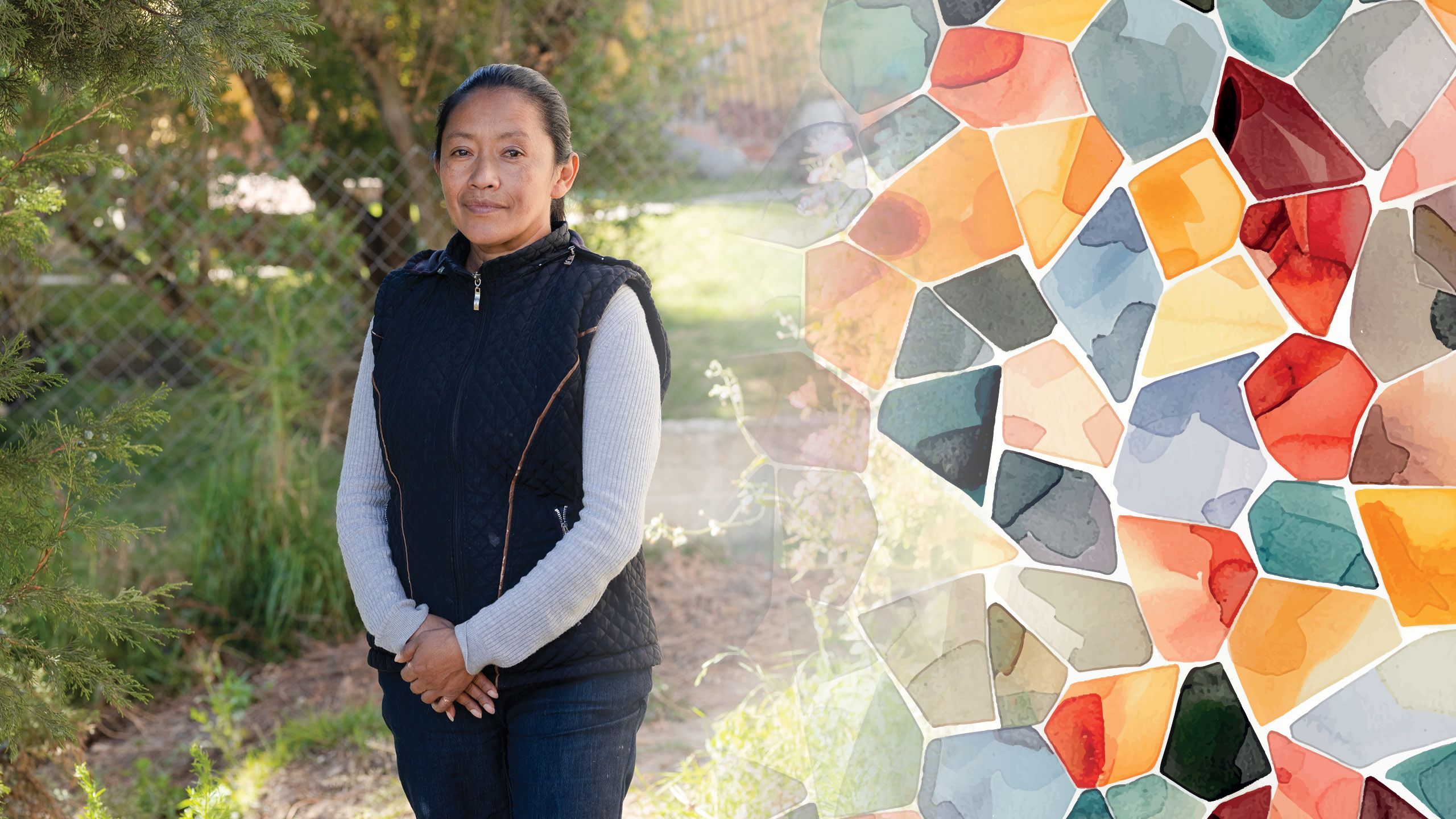
UNITED IN SOLIDARITY
Individual Bishops

Bishop Patrick M. Neary, Diocese of Saint Cloud
Letter on Immigration Issues (Feb. 14, 2025)
Excerpts include:
“In recognizing the dignity and rights of all people, Pope Francis has called for leaders to welcome, protect and create safe pathways for migrants. We must remember that many of those on the move are fleeing from violence, oppression and extreme poverty. Those affected by such circumstances are our neighbors, our coworkers and our fellow parishioners. Our longstanding tradition of welcoming the stranger not only enables us but impels us to care for the vulnerable and uphold the inherent dignity of every human person.”
“Our diocese, rich in diversity, is blessed by the presence of so many who have journeyed here from distant lands. ‘For I was hungry and you gave me food, I was thirsty and you gave me drink, I was a stranger and you welcomed me,’ from the Gospel of Matthew calls us to extend our love and compassion to all, regardless of their origin or legal status.”
Archbishop-elect Edward Weisenburger, Archdiocese of Detroit
Comments on Immigration (Feb. 13, 2025)
Excerpts include:
“When you actually go and encounter these people, and you talk to them and what they’ve been through, (you hear about) the incredible suffering — sometimes having witnessed murders, people desperately struggling just to keep their children alive, trying to hope for employment. … They’re struggling, and we have to be able to see Christ in those people.”
Archbishop José H. Gomez, Archdiocese of Los Angeles
Time for Immigration Reform (Again) (Feb. 11, 2025)
Excerpts include:
“The Catholic Church did not break the nation’s immigration system, but every day we deal with the human damage caused by that broken system: women and children who have been trafficked by coyotes and cartels; people who’ve been living and working in this country for decades but don’t have the rights or benefits of citizens; those addicted by the drugs being smuggled across our borders.”
“Now, once again, we are dealing with the fears of ordinary men, women, and children in our neighborhoods, parishes, and schools.”
“The criticism of the Church is misplaced and distracts from the real issues, which are deep and decades old.“
Statement on Immigration Issues (Jan. 22, 2025)
Excerpts include:
“For Catholics, immigration is not a political issue. It is a matter of our deeply held religious beliefs. Jesus Christ commanded us to love God as our Father and to love our brothers and sisters, especially the most vulnerable, and regardless of what country they came from or how they got here. Our love for Jesus compels us to continue our works of love and service in our parishes, schools, and other ministries.”
Cardinal Blase Cupich, Archdiocese of Chicago
Setting the Record Straight (Feb. 5, 2025)
Excerpts include:
“The truth matters, and that is why I feel it is important to set the record straight. No one who serves those in need has any interest in getting into a back and forth with public figures who make demonstrably false statements about why the church serves. They are too busy feeding the hungry, clothing the naked, giving shelter to the homeless. They would rather use the limited time God grants each of us to pursue the demands of the Gospel.”
Bishop Michael T. Martin, OFM Conv., Diocese of Charlotte, and Bishop Luis Rafael Zarama, Diocese of Raleigh
Immigration Is ‘A Moral Concern’ Affecting Dignity and Human Rights (Feb. 5, 2025)
Excerpts include:
“As Catholics, we advocate for the recognition that immigrants, as members of God’s human family, are deserving of and must be granted the appropriate dignity as our brothers and sisters in the Lord. Jesus Himself was a refugee and taught us to welcome the stranger and to realize that in welcoming the stranger, we are welcoming Christ Himself.”
“A country must regulate its borders with justice and mercy. Immigration policy that allows people to live here and contribute to society for years but refuses to offer them the opportunity to achieve legal status perpetuates a permanent underclass and does not serve the common good. It is the position of the Catholic Church that pastoral, educational, medical and social services provided by the Church are never conditioned on legal status. All persons are invited to participate in our parishes, attend our schools, and receive other services offered by our institutions and programs.”
“As members of the human family, each individual deserves and must be granted the dignity that not only supports and fosters the common good of our society but also reflects the reality that we are all fundamentally brothers and sisters in the Lord.”
Bishop Kevin C. Rhoades, Diocese of Fort Wayne-South Bend
Freedom of Worship for Migrants (Feb. 4, 2025)
Excerpts include:
“The action taken by the administration to no longer recognize the concept of protected areas in the course of immigration enforcement (which even under the prior guidance was not absolute) does not foster favorable conditions for the free exercise of religion. Indeed, by creating a climate of fear and uncertainty around the right to go to church, such action undermines those conditions.”
“All Catholics and others of goodwill in our country, regardless of their ideas about the best way to enforce immigration laws, should be unified in the conviction that people must be free to fulfill their duties to God without fear. And our immigration authorities, having now been handed very broad discretion over whether to intrude on sacred spaces, should bear in mind the gravity of such a decision. As pastors, the bishops of the United States are committed to walking with all people who seek to fulfill their duty to worship the Lord.”
Bishop Joseph Y. Tyson, Diocese of Yakima
A Light for the Gentiles (Feb. 2, 2025)
Excerpts include:
“People often say “follow the law,” not realizing that our current immigration law is hard to follow, capricious and often lacks common sense. We need secure borders. We need to know who is coming and going. We need an immigration system. But we need an immigration system that works for the well-being of all involved.”
“So how do we move forward? I think we look to Simeon and Ana as our examples of faith. In the Gospel both Simeon and Anna were very elderly. They had years of experience. In taking the long view, their hearts were prepared to see the light of Christ. In all we face, let’s imitate them. In times of darkness let’s stay focused on the light who is Jesus Christ the crucified and risen one. And let us become that light especially for the hard-working undocumented here across the Diocese of Yakima!”
Cardinal Timothy M. Dolan, Archdiocese of New York
Support for Immigrants (Jan. 28, 2025)
Excerpts include:
“We’re a nation with a proud legacy of welcoming immigrants.”
“It troubles me that my beloved country may be closing itself off from those needing and seeking safety for their very lives.”
“The church I love should not be blasted for simply obeying the Bible and caring for those immigrants who came here through this clumsy, fractured system.”
Bishop Jaime Soto, Diocese of Sacramento
Statement on Immigration Executive Orders (Jan. 22, 2025)
Excerpts include:
“It has been the Catholic tradition to provide places for people to worship without fear, to learn without distraction, to find healing without shame, and to be a good neighbor for all. Belonging to a community is a fundamental expression and affirmation of the dignity of every person.”
“These positive endeavors have contributed to the building up of vibrant neighborhoods and safer communities where we see one another as neighbors and friends. We are prepared to partner with those who seek the same.”
Archbishop John C. Wester, Archdiocese of Santa Fe
Immigration Statement (Jan. 21, 2025)
Excerpts include:
“The heart of this complex issue lies in the fact that it concerns human beings, each created in the image of God with inherent dignity. We must not treat them as mere pawns in a game of chess nor politicize them. Instead, we must place their needs and concerns at the forefront of our debates, considering both the citizens of our nation and those seeking refuge at our borders. Our Christian faith urges us to care for the resident and the stranger.”
“Let us remember that Jesus, Mary, and Joseph were once forced immigrants in Egypt, fleeing from Herod. Immigrants have already played a crucial role in making America great. Now, it is our responsibility to sustain that greatness by coming together in a bipartisan effort to enact immigration reform that honors both citizens and immigrants, addressing the intricate issues at hand. Mass deportation is not the answer. Thoughtful, bipartisan and prudent comprehensive immigration reform is what our country deserves and what our immigrant brothers and sisters need.”
Bishop Mark J. Seitz, Diocese of El Paso; Chair, USCCB Committee on Migration
Remarks to Interfaith Leaders (Jan. 15, 2025)
Excerpts include:
“When the law is used to divide, to instill fear, to separate, this is not good law. This is not humane law. This is not just law. To elected officials I say, mass deportations are not good law.”
“In the face of tactics of intimidation and division, the Catholic Church will work to protect our families, to witness to human dignity, to defend our religious liberty, to oppose the shutting down of our borders and our hearts, to march and work for immigration reform and good laws, to pour cool water on embers of hate, to preach the good news.”
Cardinal Robert McElroy, Diocese of San Diego
Press Conference (Jan. 7, 2025)
Excerpts include:
“The Catholic Church teaches that a country has the right to control its borders. And our nation’s desire to do that is a legitimate effort. At the same time, we are called always to have a sense of the dignity of every human person. And thus, plans … of having a wider indiscriminate massive deportation across the country would be … incompatible with Catholic doctrine.”
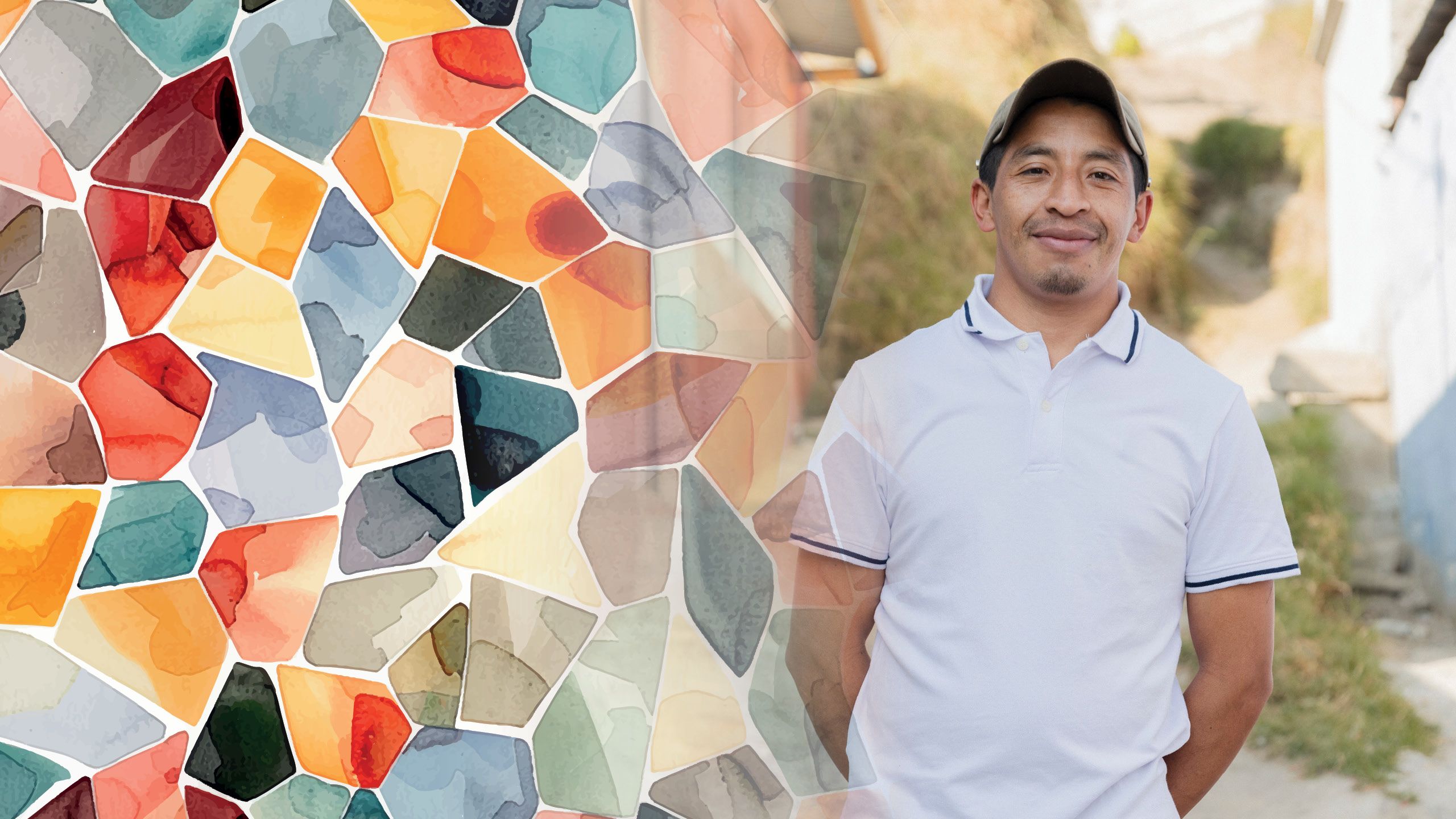
2050 Ballenger Ave, Suite 400
Alexandria, VA 22314
Tel: 703-549-1390 | catholiccharitiesusa.org
© 2025 Catholic Charities USA. All rights reserved.
Terms of Service | Privacy Policy
CCUSA is a 501(c)(3) non-profit organization.
Federal Tax ID Number 53-0196620

